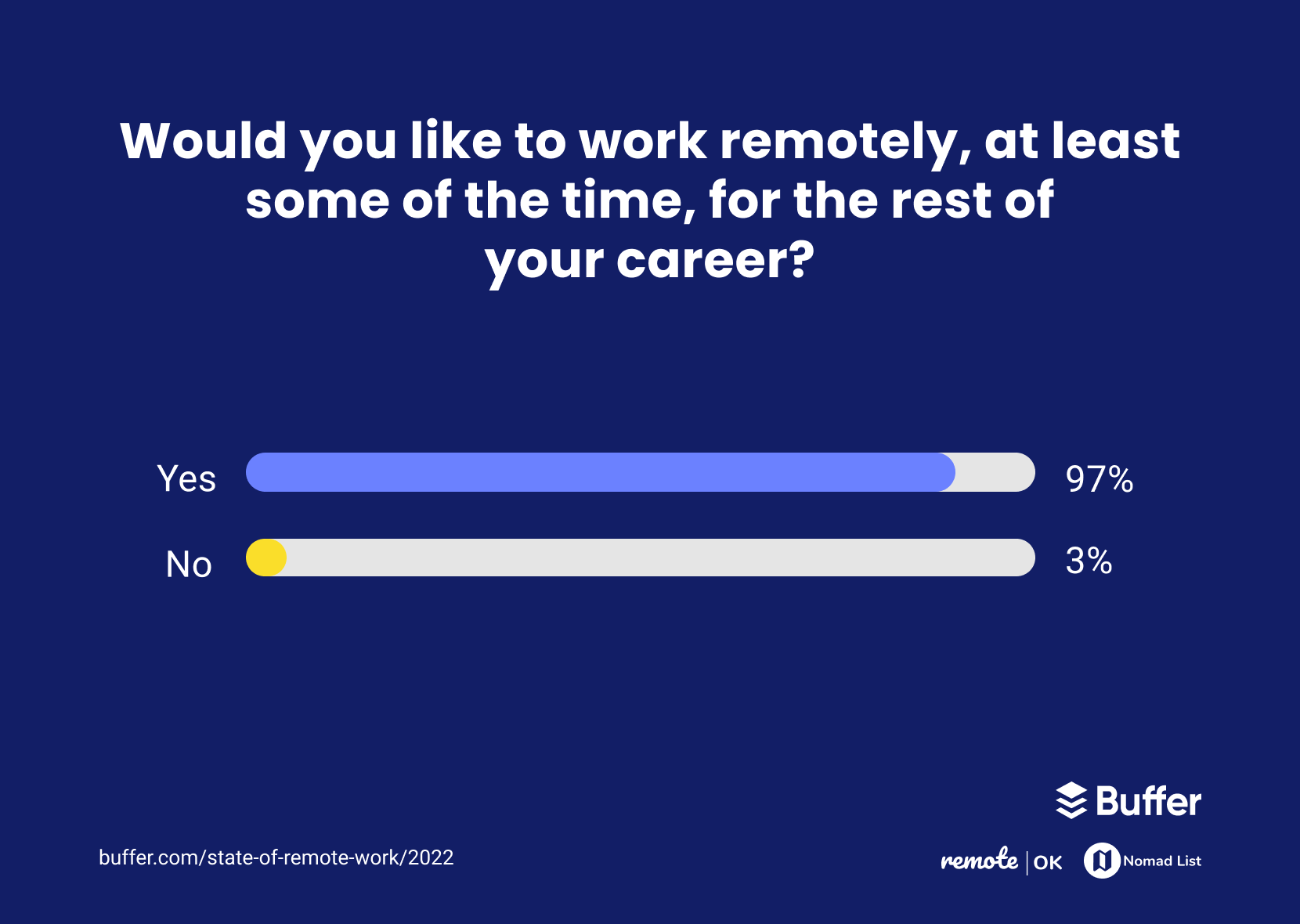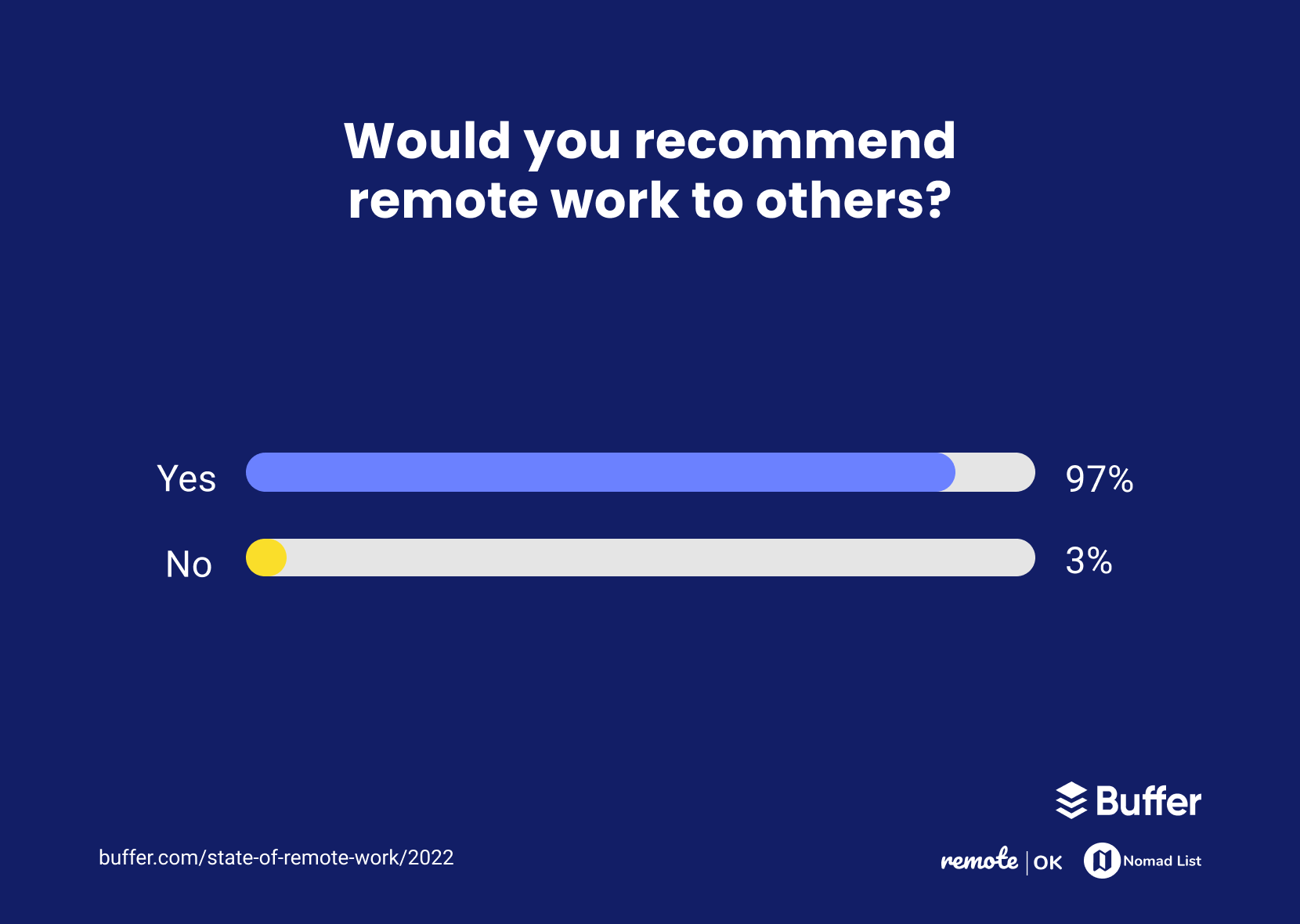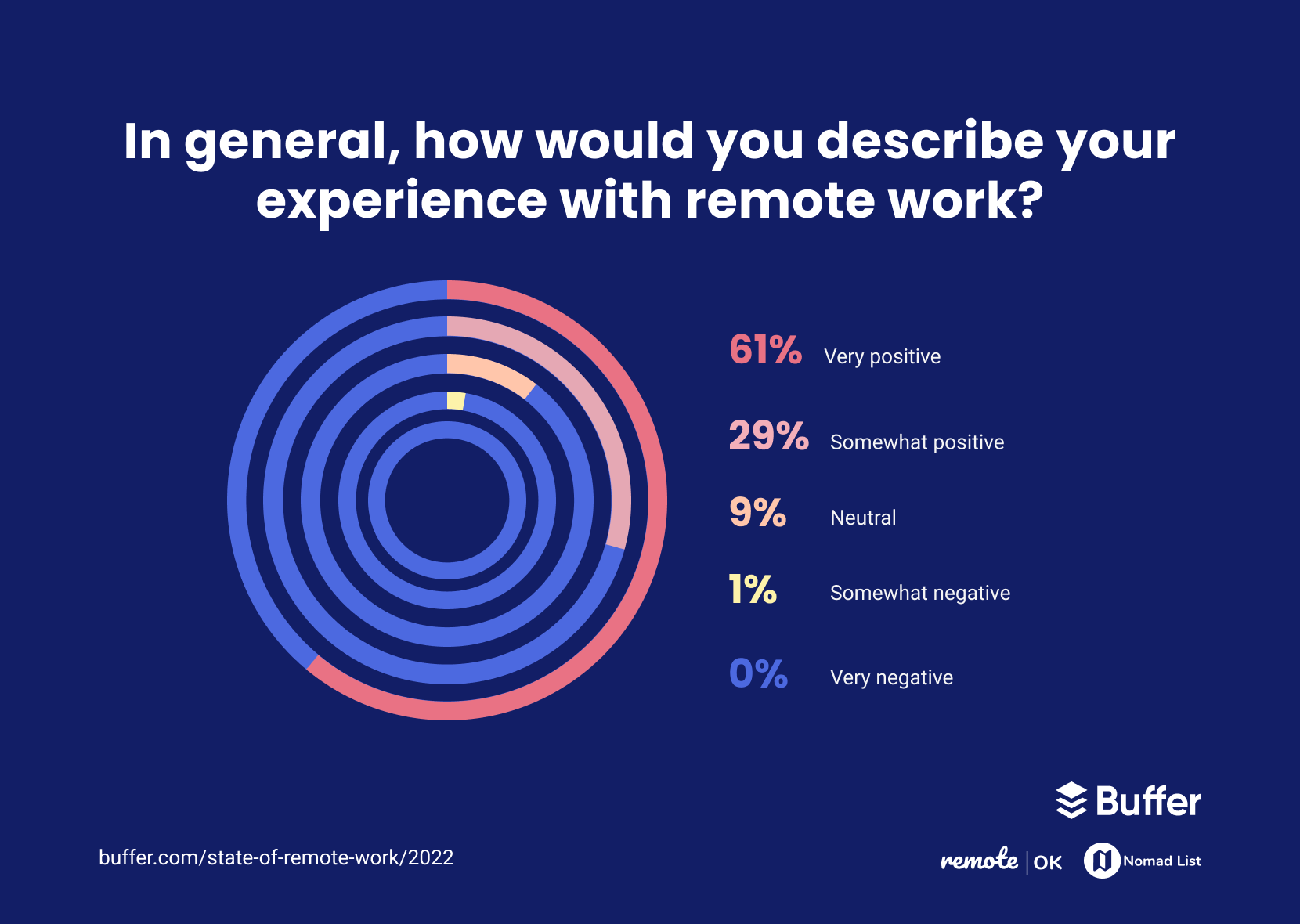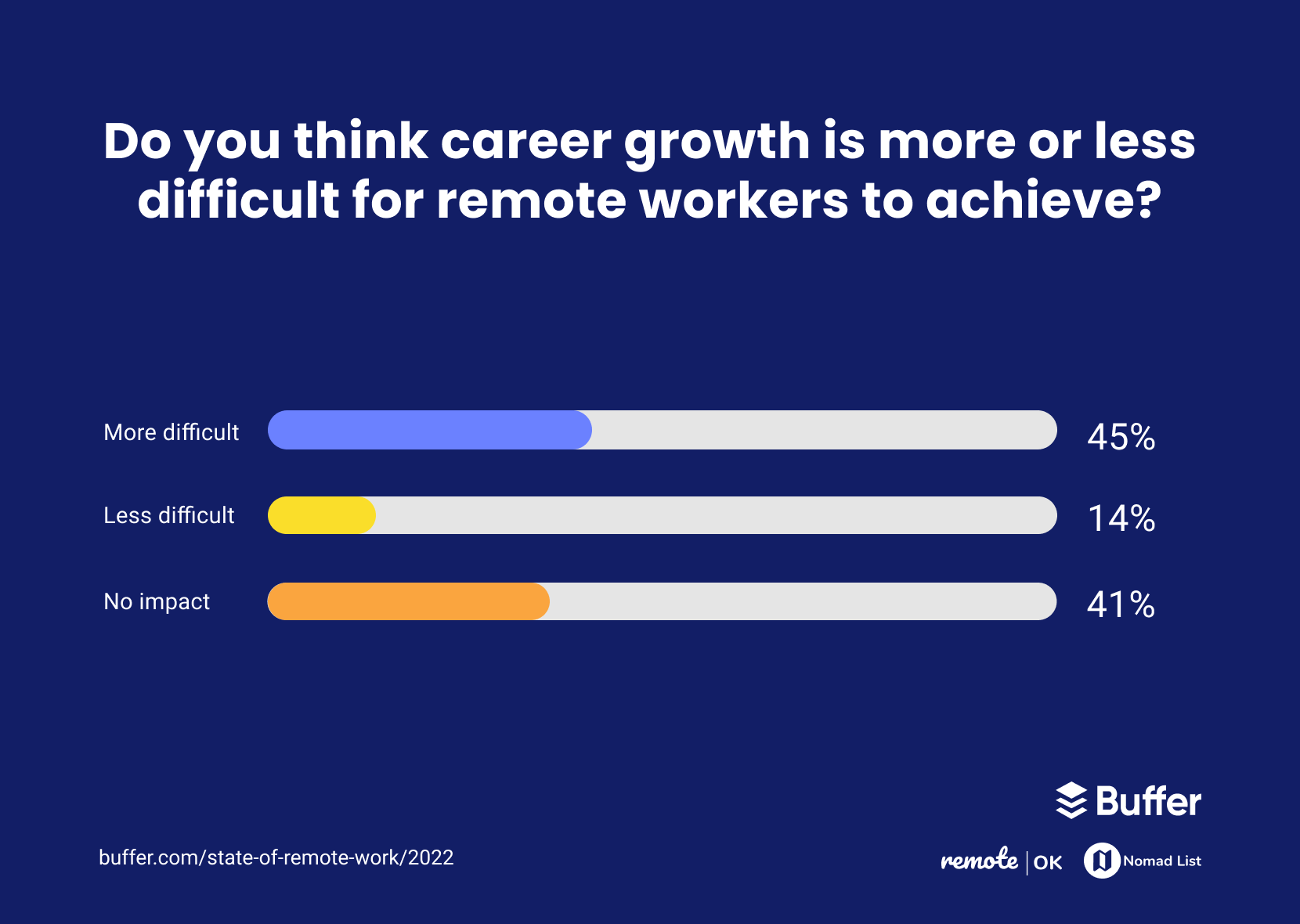
Last updated
Even after the easing of pandemic restrictions, it quickly became apparent that life wouldn't revert back to the pre-pandemic "normal", with many preferring to continue working from home. In addition, many companies discovered the advantages of this for the first time, too. The work environment has therefore experienced a dramatic transformation in how people and companies interact. As a result, new work methodologies need be established to cope with the changing circumstances.
The trend of working from home
For a significant number of individuals, the practice of working from home or adopting a hybrid work model has emerged as a standard routine, a trend likely to persist. This shift offers numerous benefits but also introduces unique difficulties.
As per Buffer's 2019 State of Remote Work report, the most pronounced hurdles confronted by remote workers included:
- Struggling to disconnect after work hours (22%)
- Feeling isolated (19%)
- Collaborating effectively (7%)
- Maintaining motivation (8%)
Naturally, these hurdles aren't exclusive to remote work - they can also be encountered by individuals who continue to work on-site. During the course of the pandemic, it has been our experience that mentoring serves as a crucial tool in surmounting many of these difficulties.
This trend continued with Buffer reporting in 2022 that 97% of people asked prefer to work from home at least some of the time and would recommend it and wish to continue doing so.


90% of workers said that they found it a positive or somewhat positive experience, with only 1% finding it negative.

The key downside identified was in terms of career development, where 45% of people thought it would be more difficult to achieve growth in their careers.

Career advancement is a significant place where mentoring holds a considerable influence over outcomes. The process of career growth requires ongoing effort, and for those who are working remotely, there may be a need for extra support to prevent their career progression from stagnating.
Mentoring can serve as a crucial instrument in facilitating career growth, applicable to both individuals returning to the physical workspace and those operating from home. Below are a few instances of how mentoring can be beneficial.
Mentoring for career development is set to become especially important where companies are increasingly becoming comfortable with remote working . In 2022, 72% of companies questioned stated that they were considering allowing some amount of remote work. This was up 26% from the level in 2021. In addition, both the amount of unsure and negative respondents dropped.

Knowledge and skills
The foundation of any career is firmly established on knowledge and skills.
In the rapidly changing post-pandemic work environment, certain skills such as digital literacy, adaptability, resilience, and emotional intelligence have become particularly important. A mentor can offer guidance and resources to help individuals develop these vital skills. For example, they can recommend online courses or resources to bolster digital literacy, share personal experiences to aid in adaptability, and offer strategies to build resilience.
In addition, mentors can provide feedback that promotes the development of emotional intelligence, and help individuals identify and fill any gaps in their skill set. This additional support can ensure individuals stay competitive in their careers, even as workplace norms and requirements evolve.
Reverse mentoring, wherein individuals collaborate with a younger colleague, is another method of skill development that has proved highly beneficial in this context. It allows for a reciprocal exchange of knowledge and experience, contributing to the professional growth of all parties involved."
Networking and visibility
Mentoring provides the opportunity to network with colleagues and stay visible within your industry. This is where the role of a mentor becomes vital. Through collaboration with a mentor, individuals can gain access to a broader professional network, opening up avenues for collaboration and learning that might otherwise remain untapped.
Additionally, a mentor can offer strategies on how to maintain one's presence and contribution in a virtual setting. This could involve providing insights on effective participation in virtual meetings, tips on digitally showcasing work and achievements, as well as advice on cultivating and preserving professional relationships in a remote setting.
Mentors can also guide individuals on utilising professional networking platforms, such as LinkedIn, to enhance their visibility, stay connected, and keep abreast of industry trends. By working with a mentor, individuals can not only expand their network but also significantly improve their visibility within their organisation or profession.
Career vision and planning
In the fast-paced modern work environment, it's easy to get entangled in day-to-day tasks and lose sight of broader career aspirations. However, through mentorship, individuals can take a step back, evaluate their current career standing, and map out a strategic path towards their career goals.
A mentor, with their wealth of professional experience, can offer fresh perspectives and uncover previously unconsidered options and directions. This can inspire individuals to set more ambitious goals and can inject a high level of motivation.
Moreover, a mentor can facilitate a clearer vision of one's career trajectory and provide an objective perspective, helping identify career goals and the steps needed to achieve them. They can also assist in recognising strengths and weaknesses, developing a career plan that maximises strengths, and devising strategies to overcome any weaknesses. With their valuable insights into industry trends and potential career opportunities, mentors ensure that individuals are well-positioned for future career success.
Opportunities
Opportunities are crucial in professional development, but they might not always be apparent or present themselves. Engaging with a mentor could unearth significant opportunities that might have otherwise been overlooked.
A mentor, drawing upon their extensive experience and wider perspective, can help you pinpoint these hidden opportunities. They can guide you in finding opportunities for learning and growth within your daily tasks, in understanding industry trends and exploiting them to your advantage, and in seeing challenges as opportunities for innovative problem-solving.
Mentors may also be working from home
In the current post-pandemic landscape, mentors themselves may also be working remotely, leading to potential changes in the dynamics of the mentoring relationship. While this change may offer flexibility and convenience, it also presents new challenges. Office-based staff, who previously benefitted from in-person interactions with mentors, might experience a decrease in the time spent directly engaging with them. The spontaneous hallway conversations and impromptu lunch meetings that once served as valuable touchpoints for mentorship are now replaced by scheduled video calls and digital communications. It's crucial to recognise this shift and seek creative and effective ways to maintain the connection and communication that are so vital to a successful mentoring relationship.
If your organisation is considering initiating a mentoring program, we welcome you to get in touch with us for a discussion about how this could be advantageous to you.


